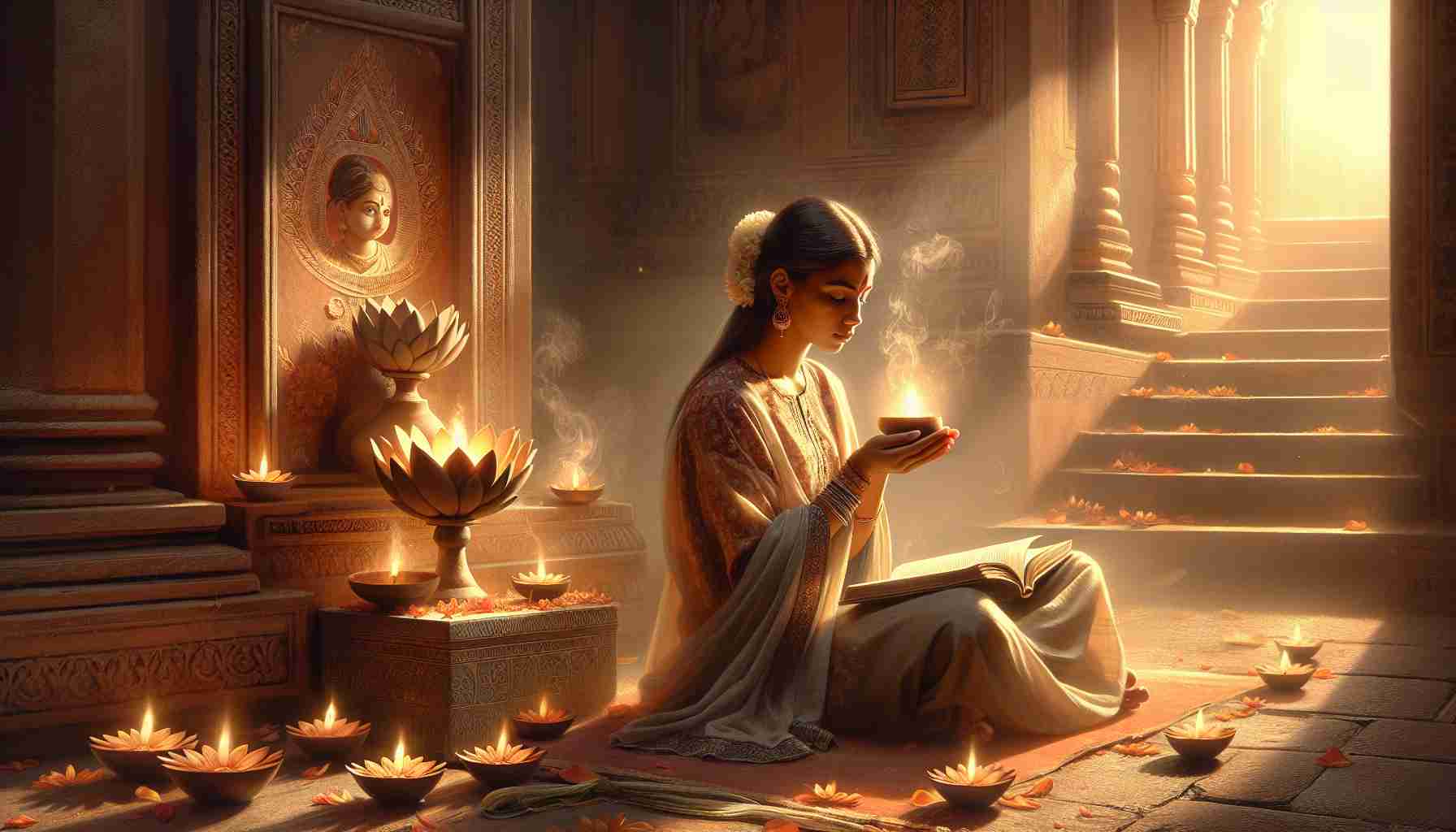

My name is Kamala. I am a primary school teacher in a small village near Srirangam, and a mother to two wonderfully mischievous sons. But three years ago, on an ordinary summer afternoon, I was not so wonderful.
That day, I stood over a broken clay diya, red-faced and trembling. My younger son, Raju, just five, had knocked it over while playing. It was part of a pair passed down from my grandmother, meant only for puja. My voice rose before I could stop it, and my words came out sharp — too sharp. Raju’s little hands trembled as he tried to piece the shards together. His tears hit the floor before mine did.
I walked away, ashamed but still burning inside. “Why must they always ruin everything?” I muttered, more to the hot air than anyone listening.
That evening, I sat before our small shrine, staring at the dim glow of the one remaining diya. The Bhagavad Gita lay on my lap. I wasn’t reading, just staring. Angry. At Raju, at myself, maybe even at life.
Then my eyes fell on a verse I had underlined long ago: “Perform your action, O Arjuna, and abandon attachment to the outcome. Be equal to success and failure. This evenness is called yoga.” (Bhagavad Gita 2.48)
Suddenly, it felt like Lord Krishna — the playful, wise charioteer guiding Arjuna — was whispering to me. These clay lamps I’d clung to with pride were just that — clay. My attachment had turned into anger. And my anger had made my son cry.
I thought of Sage Valmiki, who once lived as a highway robber before becoming the author of the Ramayana. From wrath to wisdom — how was that possible except through graceful surrender?
I closed my eyes. “Krishna,” I whispered, “I can’t seem to control my anger. I give it to You. It’s too much for me. Teach me how to soften.”
The next morning, I found Raju sitting on the temple steps outside our home, carefully holding a small diya he had painted himself with his brother. The lines were shaky, the colors uneven. But it was beautiful. He looked up shyly, “I made it for your puja, Amma.”
My throat tightened. I bent down, took the diya in both hands, and pressed my forehead to his tiny one. “It’s perfect,” I said.
From that day on, whenever I feel the fire of anger rising, I remember that verse. And I remember surrender is not weakness — it’s wisdom. Like Bhima in the Mahabharata, who wielded immense strength, but bowed to Lord Krishna’s counsel. Strength is not in shouting. It’s in softening.
I still struggle. But I now pause.
And in that pause, I hear Him — not yelling over the storm, but quiet, like a breeze through the neem trees.
Only when I laid my anger down, did I understand what the Vedas mean when they say: Truth is that which brings peace.
My name is Kamala. I am a primary school teacher in a small village near Srirangam, and a mother to two wonderfully mischievous sons. But three years ago, on an ordinary summer afternoon, I was not so wonderful.
That day, I stood over a broken clay diya, red-faced and trembling. My younger son, Raju, just five, had knocked it over while playing. It was part of a pair passed down from my grandmother, meant only for puja. My voice rose before I could stop it, and my words came out sharp — too sharp. Raju’s little hands trembled as he tried to piece the shards together. His tears hit the floor before mine did.
I walked away, ashamed but still burning inside. “Why must they always ruin everything?” I muttered, more to the hot air than anyone listening.
That evening, I sat before our small shrine, staring at the dim glow of the one remaining diya. The Bhagavad Gita lay on my lap. I wasn’t reading, just staring. Angry. At Raju, at myself, maybe even at life.
Then my eyes fell on a verse I had underlined long ago: “Perform your action, O Arjuna, and abandon attachment to the outcome. Be equal to success and failure. This evenness is called yoga.” (Bhagavad Gita 2.48)
Suddenly, it felt like Lord Krishna — the playful, wise charioteer guiding Arjuna — was whispering to me. These clay lamps I’d clung to with pride were just that — clay. My attachment had turned into anger. And my anger had made my son cry.
I thought of Sage Valmiki, who once lived as a highway robber before becoming the author of the Ramayana. From wrath to wisdom — how was that possible except through graceful surrender?
I closed my eyes. “Krishna,” I whispered, “I can’t seem to control my anger. I give it to You. It’s too much for me. Teach me how to soften.”
The next morning, I found Raju sitting on the temple steps outside our home, carefully holding a small diya he had painted himself with his brother. The lines were shaky, the colors uneven. But it was beautiful. He looked up shyly, “I made it for your puja, Amma.”
My throat tightened. I bent down, took the diya in both hands, and pressed my forehead to his tiny one. “It’s perfect,” I said.
From that day on, whenever I feel the fire of anger rising, I remember that verse. And I remember surrender is not weakness — it’s wisdom. Like Bhima in the Mahabharata, who wielded immense strength, but bowed to Lord Krishna’s counsel. Strength is not in shouting. It’s in softening.
I still struggle. But I now pause.
And in that pause, I hear Him — not yelling over the storm, but quiet, like a breeze through the neem trees.
Only when I laid my anger down, did I understand what the Vedas mean when they say: Truth is that which brings peace.